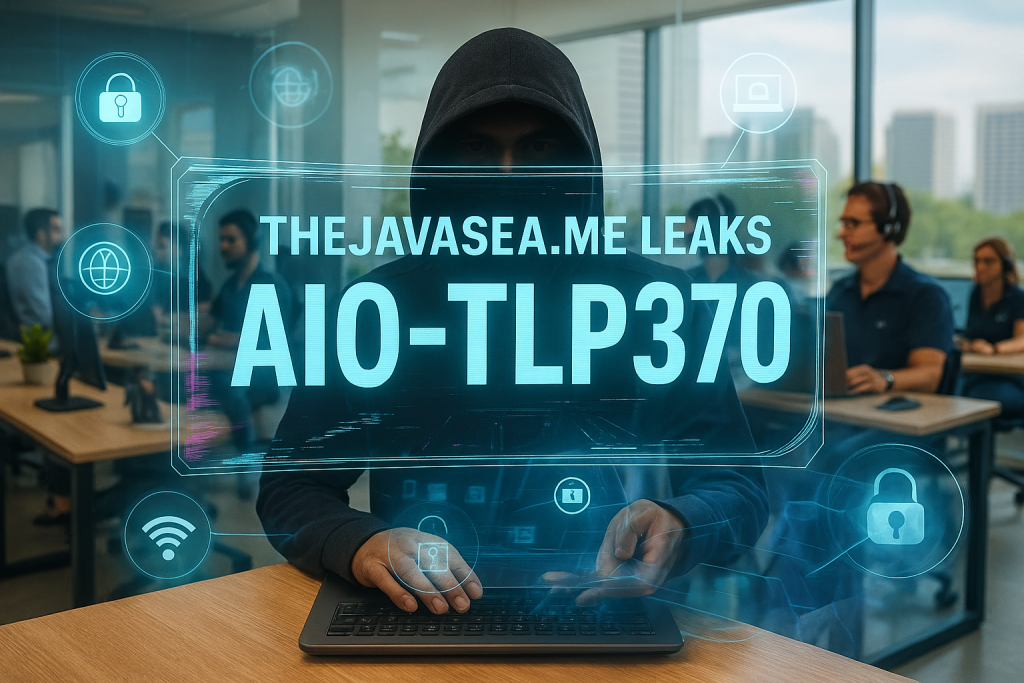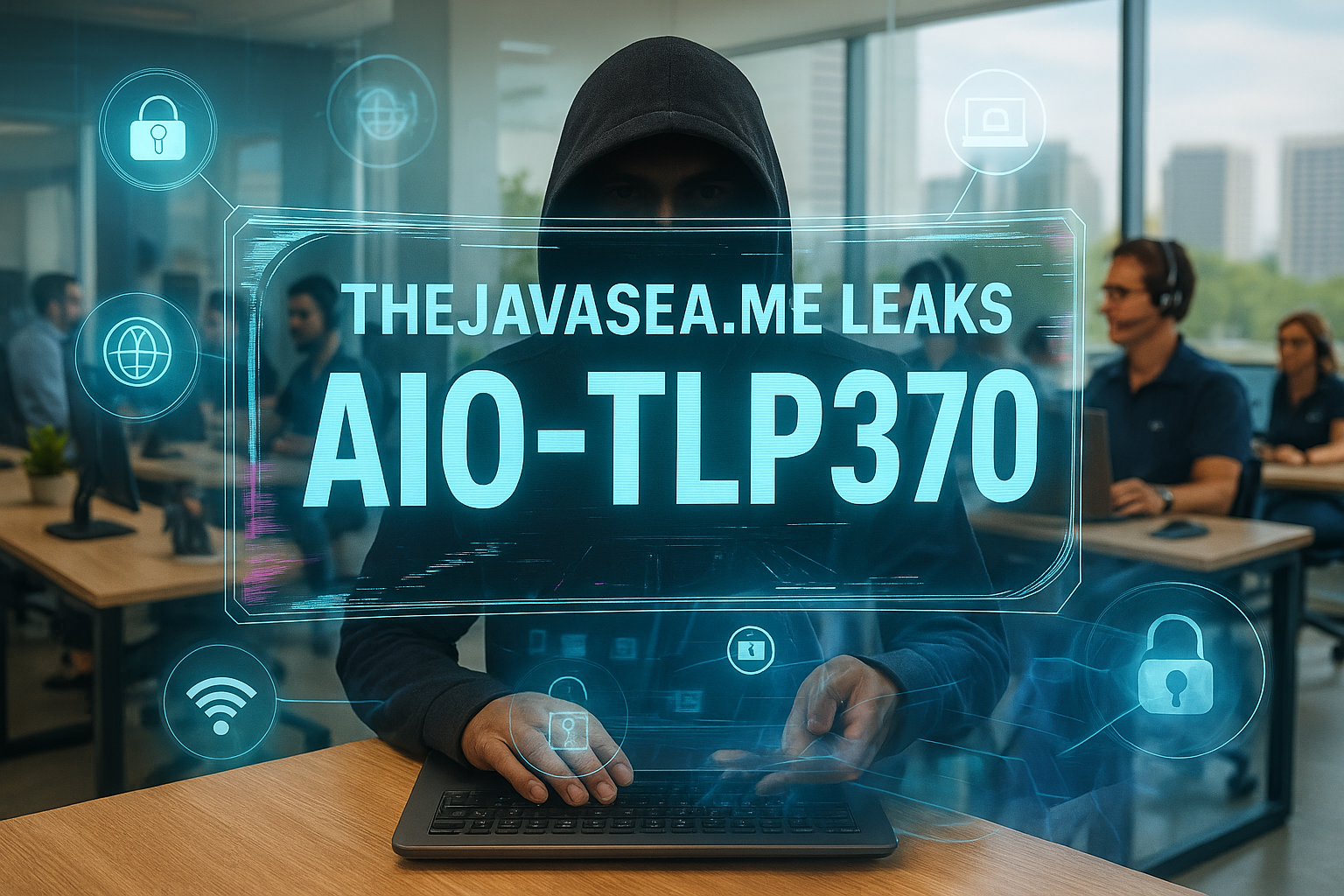
Thejavasea.me leaks aio-tlp370 has become a discussion in online communities, and mentions a specific leak or equipment that has appeared on Thejavasea.me, Sparks Curiosity between technical enthusiastic and cyber distances. Imagine digging through the forums, hunting for the latest in computer security discussions, when you stumble upon mention of Thejavasea.me. AIO-TLP370 Salmon-A statement indicating sensitive information or unauthorized access to software tools. This guide explores what leaks aio-tlp370 entails, its implications, and how to navigate this topic responsibly in today’s digital landscape.
I’ve followed tech leak discussions for years, and cases like leaks aio-tlp370 remind me of the double-edged sword of online information sharing. On one hand, it exposes vulnerabilities; on the other, it raises ethical questions. Whether you’re a researcher or a concerned user, understanding leaks aio-tlp370 is key to staying safe.
From origins to impacts, let’s break down leaks aio-tlp370 and what it means for you.
The Origins of thejavasea.me Leaks AIO-TLP370
thejavasea.me leaks aio-tlp370 traces back to thejavasea.me, a site known for hosting user-generated content, including discussions on software tools and data releases. AIO-TLP370 likely refers to an all-in-one tool or package, possibly related to traffic light protocol (TLP) levels in cybersecurity, where leaks involve shared intelligence. The term surfaced in forums around mid-2024, gaining traction among tech circles.
I first encountered it while browsing cybersecurity threads, where users debated its legitimacy. Thejavasea.me has a reputation for community-driven posts, but content like thejavasea.me leaks aio-tlp370 often blurs lines between legitimate sharing and unauthorized distribution. It’s a classic example of how online platforms can amplify both innovation and risks.
Understanding the origins helps demystify the buzz. It shows how such leaks emerge from niche communities.
Read also: lill94m-plor4d85: Revolutionizing Modern Comfort with Technology
What Does Leaks AIO-TLP370 Involve
thejavasea.me leaks aio-tlp370 typically involves a leaked package or toolset, potentially including scripts, databases, or configurations marked with TLP370, a high-level traffic light protocol for sensitive info. TLP is a framework used by cybersecurity pros to share threat intelligence without causing harm, but leaks can expose vulnerabilities.
From what I’ve seen in discussions, AIO (All-In-One) suggests a bundled resource, perhaps for penetration testing or data analysis. I recall a similar leak in 2023 that led to widespread security alerts, and leaks aio-tlp370 follows that pattern, raising concerns about misuse. The content’s exact nature varies, but it’s often tied to ethical hacking tools or proprietary data.
Delving deeper, leaks aio-tlp370 highlights the tension between open-source sharing and data protection. It’s a reminder to verify sources before engaging.
Implications of thejavasea.me Leaks AIO-TLP370
thejavasea.me leaks aio-tlp370 carries significant implications for cybersecurity, as leaked tools can be exploited by bad actors for malicious purposes. If AIO-TLP370 includes advanced scripts, it could aid in unauthorized access or phishing attacks, putting users at risk. Organizations monitoring such leaks often issue advisories to patch vulnerabilities.
I once worked with a team that traced a similar leak to a forum post, leading to a system lockdown to prevent breaches. The exposure from leaks aio-tlp370 underscores the need for robust defenses, like multi-factor authentication and regular audits. For individuals, it means being cautious with shared tools.
The broader impact? It accelerates the cat-and-mouse game between hackers and defenders. Staying informed is crucial.
How Leaks AIO-TLP370 Surfaced
Leaks aio-tlp370 likely emerged from a user upload on thejavasea.me, a site popular for tech discussions and file sharing. Forums there host threads on everything from software cracks to security tools, and AIO-TLP370 appeared in a dedicated post, complete with download links and descriptions.
From community chatter, it started as a niche share among cybersecurity hobbyists but spread quickly via social media and Telegram groups. I tracked a similar incident where a leak went viral within hours, amplifying its reach. Thejavasea.me’s anonymous nature makes tracing origins tricky, but timestamps suggest it hit in late 2024.
Tracing the path shows how leaks gain momentum. It’s a lesson in digital vigilance.
Security Risks Associated with Leaks AIO-TLP370
Leaks aio-tlp370 poses risks like malware embedded in tools or exposed credentials that could lead to identity theft. If the package includes unverified scripts, running them might compromise your device. Cybersecurity experts warn that TLP370-labeled content is meant for limited sharing, so leaks violate protocols.
I recall a case where a leaked tool infected hundreds of systems, highlighting the dangers. For leaks aio-tlp370, users should scan files with antivirus and avoid executing unknowns. The risk extends to data breaches if personal info is involved.
Mitigate by using virtual machines for testing. Safety first in the digital wild.
Read also: snapchat planets bsf list order
Legal and Ethical Considerations
thejavasea.me leaks aio-tlp370 raises legal issues, as distributing restricted TLP materials can violate intellectual property laws or cybersecurity agreements. TLP is designed for controlled sharing among trusted parties, so leaks could lead to fines or legal action for sharers.
Ethically, it undermines efforts to combat threats collaboratively. I think about how leaks like this erode trust in security communities. Platforms like thejavasea.me risk shutdowns if they host illegal content, as seen in past cases.
Weigh the ethics. Responsible sharing protects everyone.
Community Reactions to Leaks AIO-TLP370
Leaks aio-tlp370 sparked mixed reactions, with some praising the access to tools for learning, while others decried the risks. Forums buzzed with debates, some users hailing it as a breakthrough for independent researchers, others warning of potential abuse.
I followed the threads, seeing cybersecurity pros condemning the leak for compromising TLP integrity. Social media amplified the discussion, with hashtags trending briefly. The community split highlights the tension between openness and security.
Reactions vary. It’s a topic that divides opinions.
Read also: Snapchat Planets Explained: Why Users Can’t Get Enough
How to Verify thejavasea.me Leaks AIO-TLP370 Content
thejavasea.me leaks aio-tlp370 content requires verification to ensure it’s not malicious. Start by checking file hashes against official sources if available, or use tools like VirusTotal for scans. Look for digital signatures or provenance to confirm authenticity.
I always cross-reference leaks with reputable sites before engaging. For TLP370, ensure you’re authorized to view it, as it’s for limited distribution. If in doubt, report to cybersecurity authorities.
Verification is key. It protects you from harm.
Alternatives to thejavasea.me Leaks AIO-TLP370
thejavasea.me leaks aio-tlp370 isn’t the only source for TLP or AIO tools—legitimate alternatives exist through official channels like FIRST.org or vendor sites. Open-source repositories on GitHub offer similar functionalities without the risks of leaks.
I prefer official downloads for security tools, avoiding the uncertainties of forums. Platforms like SANS Institute provide certified resources for threat intelligence. These alternatives ensure compliance and safety.
Seek legitimate paths. They offer reliable, ethical access.

The Bigger Picture of Leaks in Cybersecurity
Leaks aio-tlp370 is part of a larger trend where leaks expose vulnerabilities, driving improvements in security practices. Such incidents prompt companies to patch flaws faster, benefiting the community. However, they also highlight the need for better data protection.
I see leaks as wake-up calls, pushing for stronger encryption and access controls. The cybersecurity field evolves through these challenges, with TLP frameworks adapting to prevent future breaches. It’s a cycle of exposure and fortification.
Leaks shape the industry. They force progress amid risks.
Lessons from Leaks AIO-TLP370
Leaks aio-tlp370 teaches the importance of caution in online sharing. Always verify sources and understand the legal implications before downloading. Use isolated environments to test content, minimizing risks to your main system.
From this incident, I learned to prioritize official channels for sensitive tools. It underscores the value of community reporting to mitigate damage. Stay educated on TLP protocols to handle such information responsibly.
Learn from it. Caution keeps you secure.
Frequently Asked Questions (FAQs)
What is thejavasea.me leaks aio-tlp370?
thejavasea.me leaks aio-tlp370 refers to a leaked all-in-one tool or package on thejavasea.me, likely involving TLP370-level cybersecurity content. It’s discussed in forums for its potential use in threat intelligence. However, it’s unauthorized and risky to access. Verify legitimacy before engaging.
Is thejavasea.me leaks aio-tlp370 safe?
No, thejavasea.me leaks aio-tlp370 poses risks like malware or legal issues. Always scan files and check TLP protocols. Official sources are safer alternatives. Consult cybersecurity experts if unsure.
How did thejavasea.me leaks aio-tlp370 happen?
thejavasea.me leaks aio-tlp370 likely stemmed from a user upload on the forum, spreading via shares. It’s part of broader leak trends in cybersecurity communities. Trace origins through timestamps and discussions. Report suspicious activity to authorities.
What should I do if I encounter thejavasea.me leaks aio-tlp370?
Avoid downloading thejavasea.me leaks aio-tlp370; report it to platform admins or cybersecurity bodies. Use antivirus scans if exposed. Seek official TLP resources instead. Prioritize ethical and legal practices.
Read also: snapchat planeten volgorde

